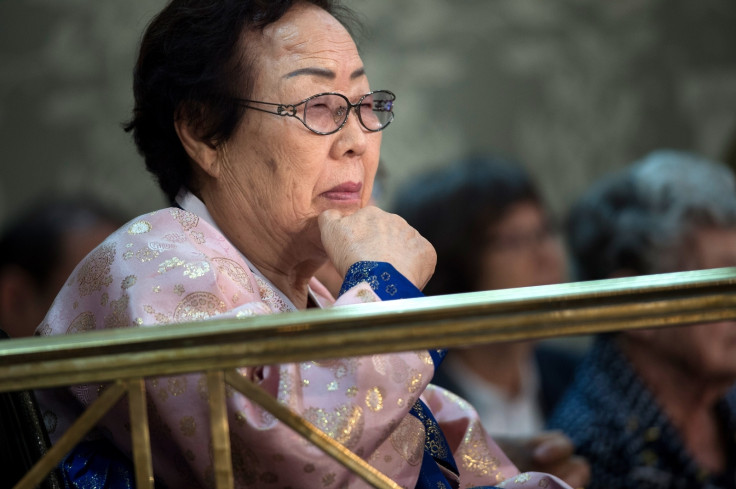South Korea not to renegotiate sex slave agreement with Japan in sharp U-turn
South Korean foreign minister announces Seoul would allocate funds from its own money and would not seek renegotiation with Tokyo.
South Korea has announced it would not seek renegotiation of terms of the landmark sex slavery deal with Japan in a sharp U-turn from its earlier position. Seoul said on Tuesday, 9 January, that it would allocate funds from its own coffers to help Korean victims of Japan's bloody colonial past.
Japan and South Korea signed a crucial deal to close the issue of what is known as "comfort women" in 2015. As part of the accord, Japan had apologised to the victims and pledged 1bn yen ($8.8m, £6.1m) – termed carefully as a humanitarian offer and not reparation – to the dwindling number of survivors.
But, this deal came under heavy criticism right from when it was signed two years ago, with some saying the specifics of the bilateral agreement stood flawed. South Korea's President Moon Jae-in had pledged to renegotiate the terms of the deal with Japan, which firmly said the agreement cannot be amended.
After Moon took over, he set up a panel to examine the agreement and following its findings he demanded that the deal is reworked in late December 2017.
But, reversing from its earlier demand, the South Korean government said it would no longer seek Tokyo to contribute extra funds and instead use its own money to help the victims.
South Korea's Foreign Minister Kang Kyung-wha told a press conference that Seoul would discuss with the Japanese administration in the coming days on how to implement the agreement.
More than 200,000 women – often euphemistically referred to as "comfort women" – from Korea, Taiwan, China and other nationalities were forced to work at wartime brothels by the Japanese Imperial Military during the Second World War. It was one of the biggest human trafficking cases of the 20<sup>th century.
Sentiments about the issue are still running deep in both South Korea and Japan, the two crucial allies of the US given the tension situation due to North Korea threats.







